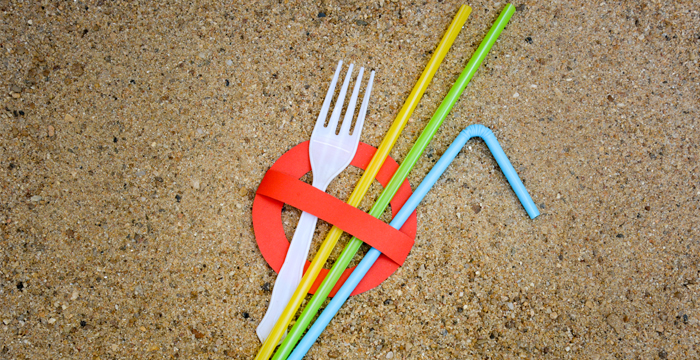Imagine going to a fast food joint to get some nuggets and the cashier asks you, ‘Would you like a drink with that?’. ‘Yes please’. You have succumbed to up-selling method to get the customers to buy more products from the restaurant. Beyond that, it is also a contributing figure to the estimated 8.5 billion plastic straws used every year in the UK.
These days, straws have become so entrenched in our culture that almost every drink is served with one. Plastic straws are being used in restaurants, workspace pantries, university cafeterias, hospitals and across many other economic ecosystems. Using plastic straws have become so common in our lives these days that upon reflection, it is difficult to curb the habit when consciously trying to do so.
But why stop now? Here are some reasons why students should stop using plastic straws.
Materials used to manufacture the straws
The first important aspect which should be taken into consideration is the material used to manufacture the straws. The straws are typically made from polypropylene plastic which is somewhat toxic and considered dangerous for health. This makes the straws potentially toxic or carcinogenic which may eventually lead to cancer. Most of the straws are often labeled as BPA-free but are not totally free of harmful materials and might contain some amount of dangerous chemicals.
Straws are harmful to the ecosystem
Straws are said to recyclable but there is a contradicting reality to this statement. Straws are too lightweight for the recyclable sorters which are why most of the plastic straws often just pollute the environment. According to the studies, the average life of a straw is about 200 years mainly because they are not biodegradable. So where do the straws go after using? Well, most of them are directly or indirectly dumped in the oceans and seas.
In 2015, a shocking video of a sea turtle with a plastic straw lodged to its nostrils surfaced on Youtube. This viral video has only reinforced the reasons not to use disposable straws.
These straws not only pollute the oceans and seas but also harm the fish and other living creatures in the sea, as the aquatic animals can confuse the plastic bits with the food, and eventually choke and die. According to a study’s estimate, by 2050 there will be more plastic straws in the ocean than there are fish. Therefore, it is our duty to not only to protect ourselves from the upcoming detrimental repercussions of using the straws but also preclude our ecosystem from getting into a state of disrepair.
 200 Years for a plastic straw
200 Years for a plastic straw
Imagine all the plastic straws you’ve ever used in your entire lifetime up till now, still being present somewhere on this planet. Plastic straws do not go away. The disposable plastic straws degrade until they are microscopic and that takes a couple of hundred years.
Burning plastic straws is not the solution either. Upon burning, the straws emit harmful dioxins which are not only harmful to one’s health but is also destructive for the environment and ecosystem.
Simple Solution
Fortunately, there is a quick fix to this problem. If you do not need to use a straw, don’t use one. However, if it is necessary for you to use a straw(due to physical handicap limitations), consider using a reusable straw made out of metal.
In simple economics, as a consumer, our demands dictate the supply of these plastic straws. If we do our part in decreasing this demand for disposable straws, less of it will be produced and will eventually lead to a more sustainable future.
Why Students?
Students are the next generation’s inheritors of this environmental dilemma. In the two or so generations before us, the discussion of environmental protection and change went from emerging to emergency. As a result, it has become our duty to resolve these issues. So, give it a try – avoid using plastic straws. It is a small sacrifice for a huge cause. Know that by contributing to a world with less single-use plastic, you are working towards a cleaner ocean.


